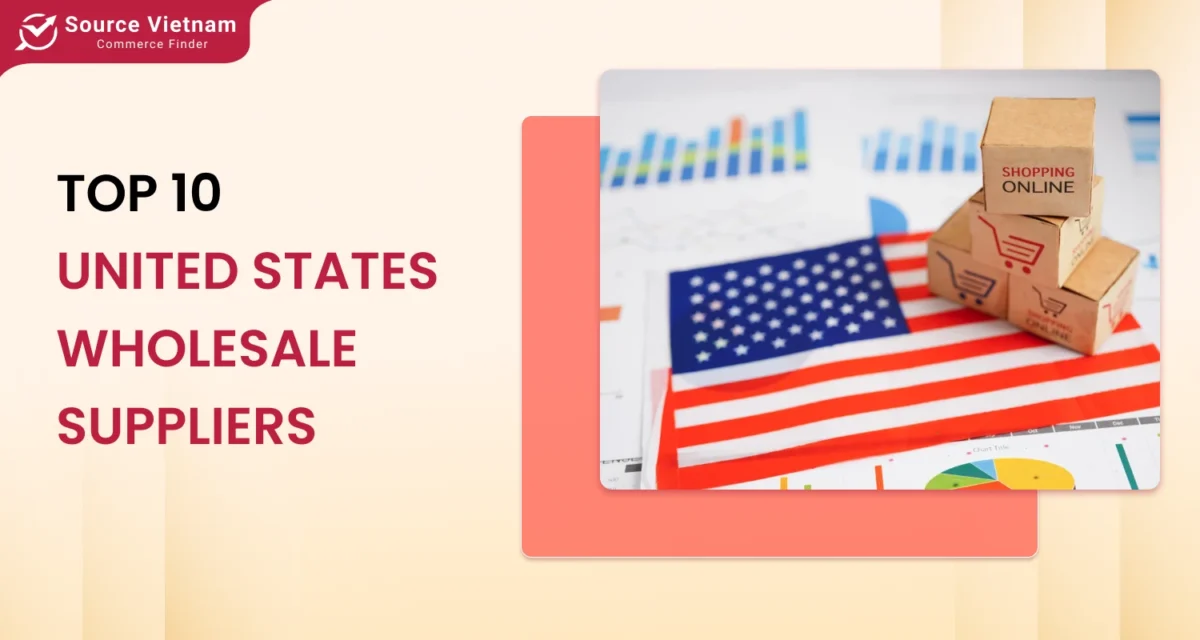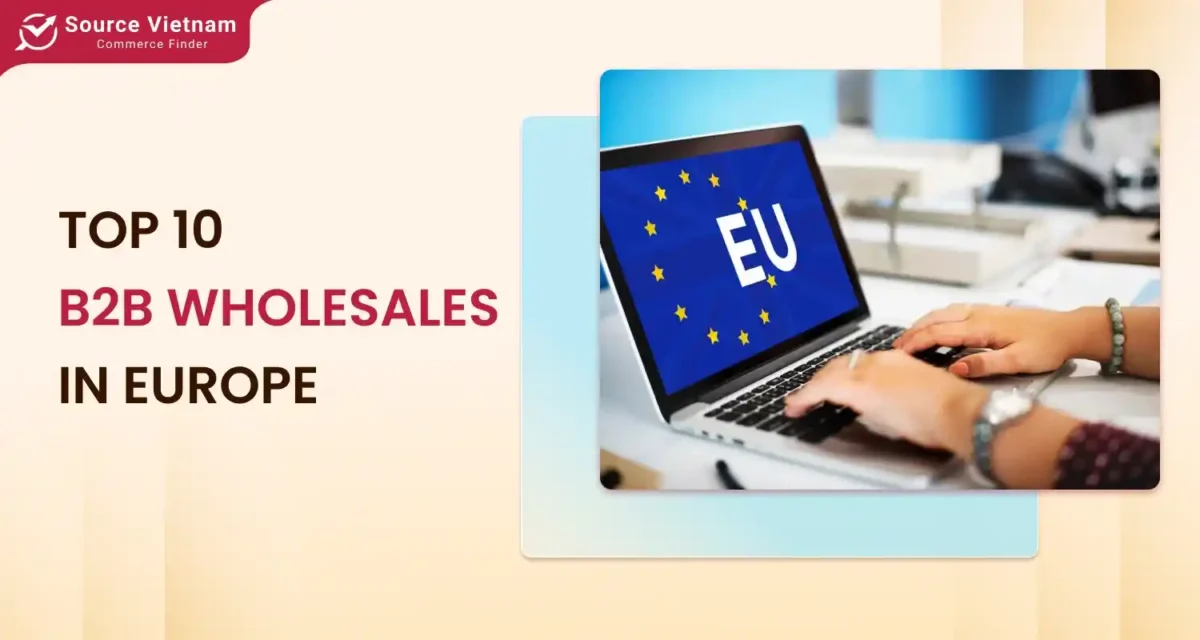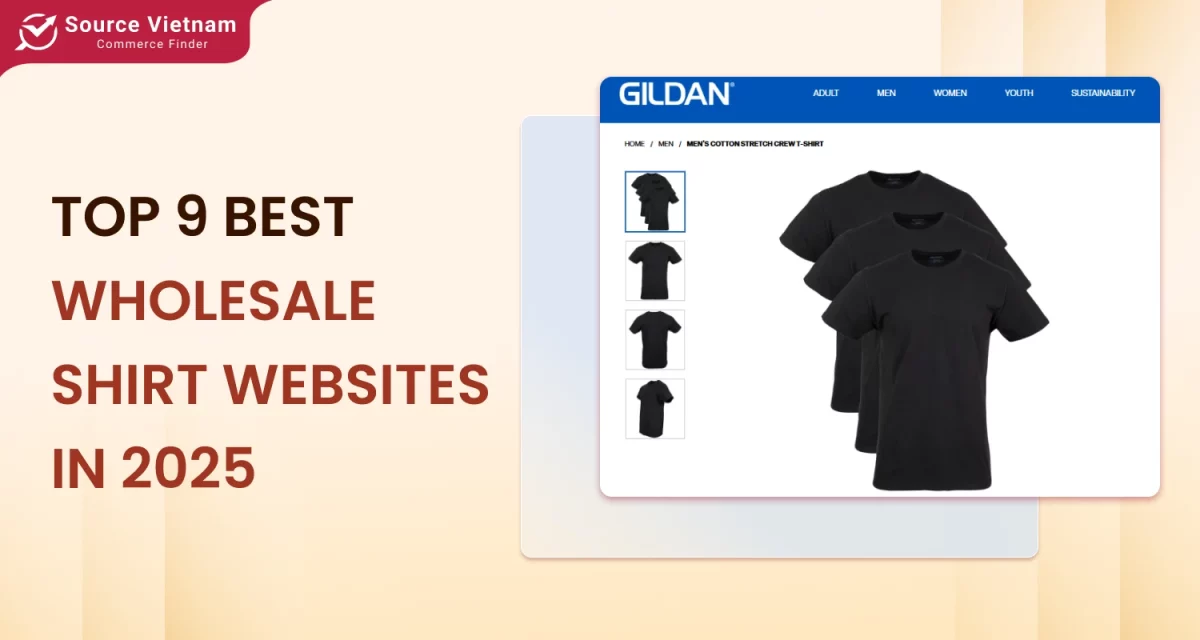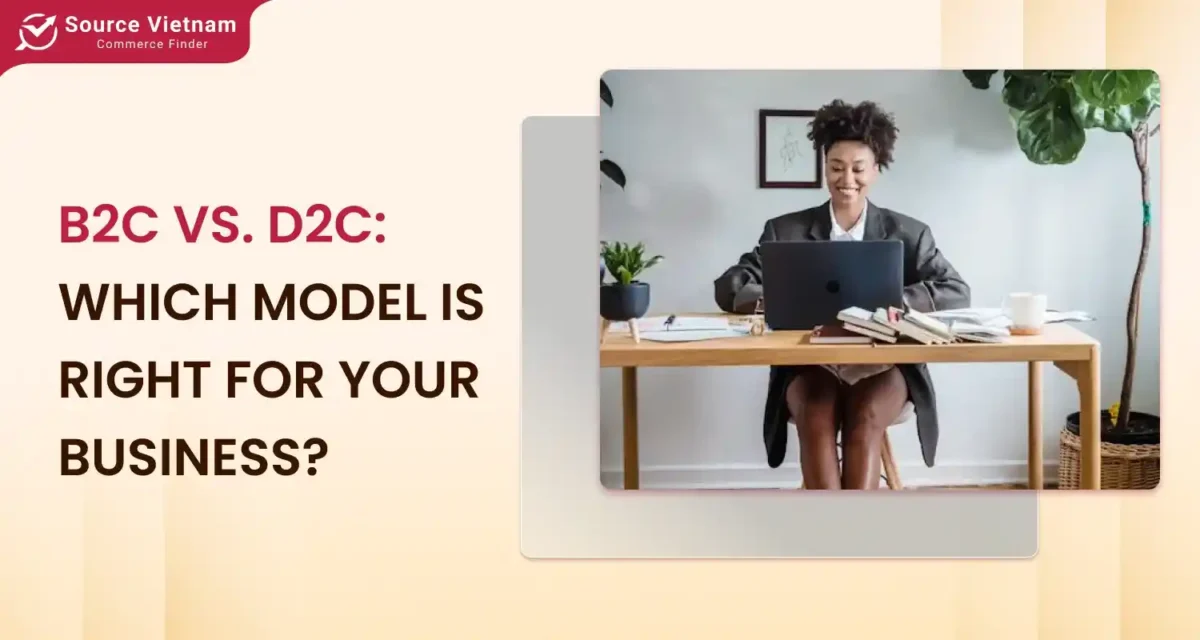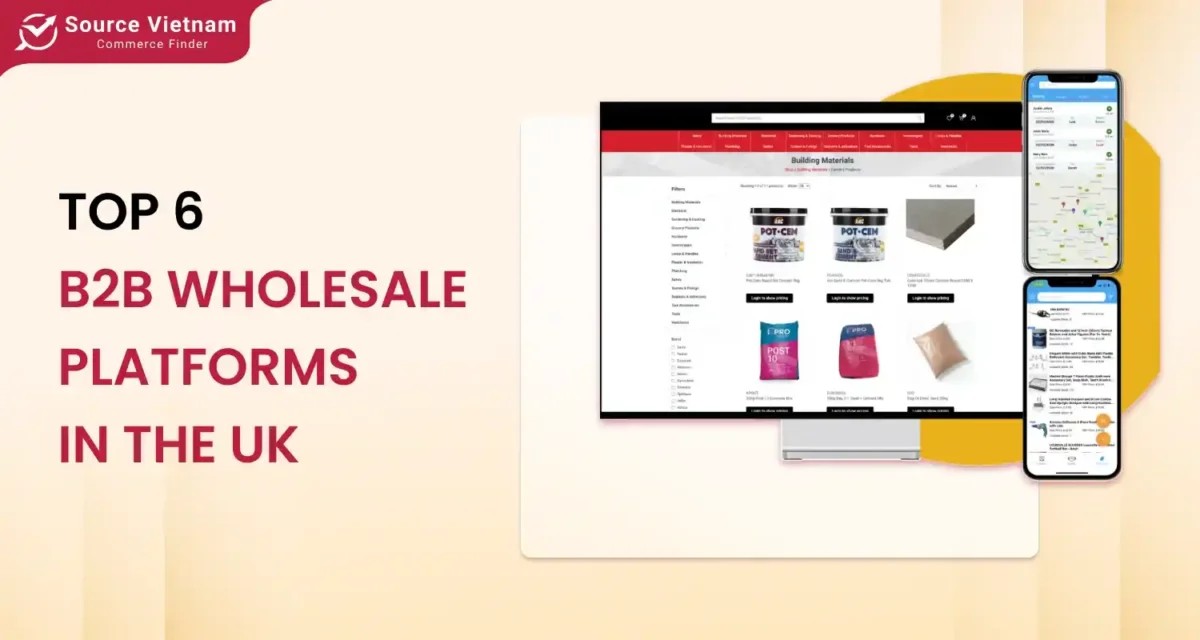B2B vs D2C are distinct business models, with B2B focusing on sales between businesses and D2C on direct sales to consumers. Key differences include customer relationships (long-term vs. individual), sales cycles (complex vs. direct), marketing strategies (lead generation vs. brand building), and product volume and pricing (bulk orders vs. individual transactions).
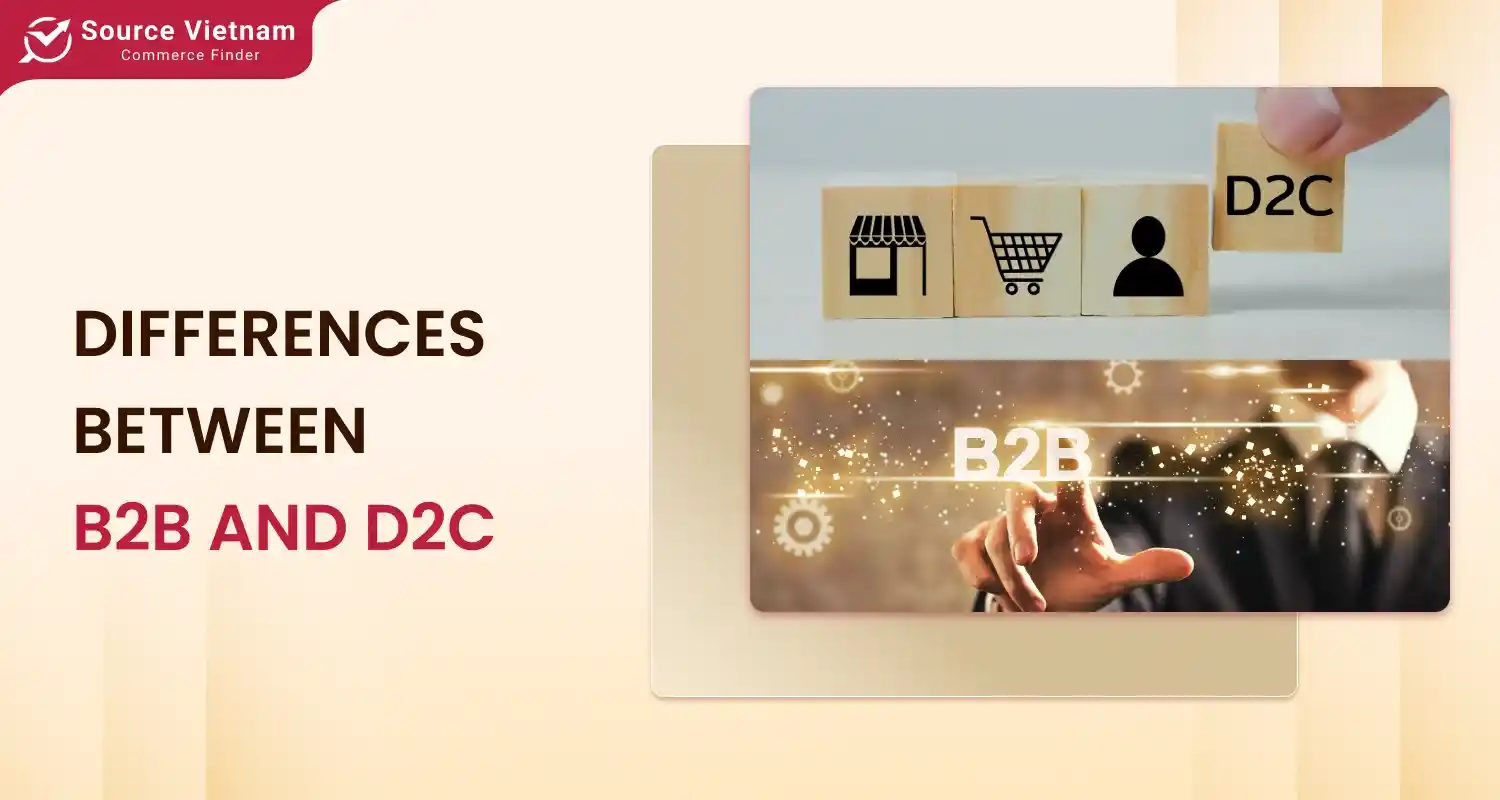
The evolution of the business industry has led to many options for sale models. This includes B2B and D2C business models, making it all the more cumbersome for a newbie entering the business world. Differences between B2B and D2C herald the first steps of your business journey.
The good news is you won’t have to register for class to ace this game; read on for the answers to your questions about customer relationships, marketing tactics, and sales strategies.
What is B2B?
First, let’s get down to the basics. B2B is business-to-business, meaning companies sell products or services to other enterprises. Most B2B buyers are wholesalers and retailers who don’t make their goods but purchase items from manufacturers at comparatively reduced costs. Then, they resell these products for a higher price, considering distribution costs, resource costs, and other factors.

B2B sales can be complicated as they involve large order quantities, long sales cycles, and many decision-makers. However, if successfully deployed, this model brings several opportunities for business growth, such as higher profit margins, long-term relationships, and niche market access.
Examples of B2B companies
To your surprise, many big corporations are B2B companies, gaining achievements thanks to their solid B2B marketing strategies. Let’s look at some prominent examples.
- IBM: The brand provides many services in various sectors, such as cloud computing, AI, blockchain, cybersecurity, etc. As of October 2024, IBM was ranked 60th on the ‘most valuable companies in the world’ list; the market cap is recorded to be $214.86 billion in USD, proving it is very successful in the B2B sector.
- Microsoft: Just like IBM, Microsoft is also a well-known technology corporation, offering software, hardware, and technology services for clients in different industries. You may be overly familiar with Windows – Earth’s most used computing operation. Additionally, Microsoft offers Microsoft Office, including Excel, Word, PowerPoint, and Office 365. The business extends its expertise to big organizations by providing Azure cloud services, which allow for the management and analysis of massive quantities of data.
- Salesforce: Salesforce was established in 1999 and has been one of the leading cloud-based software companies. The brand sells its services to medium-sized and large-scale enterprises. Salesforce provides CRM solutions for businesses to connect with customers, such as managing client information or tracking sales.
What is D2C?
Direct-to-consumer (D2C) means companies that sell their products directly to customers, bypassing middleman distributors, merchants, or wholesalers. E-commerce is increasingly driving the trend of D2C – rather than going to a supermarket or shopping mall, customers can shop from a brand online directly through its online store.

By cutting out the intermediates, companies can save a hell of a lot of resources and have control over their products. Moreover, the increasing demand for D2C encourages many brands to pursue this business model. According to KPMG, retail e-commerce has expanded by more than 26% in 2020, while in 2021, it has grown to over 16%.
Examples of D2C brands
Whether you’re fresh into the industry or want to shift to D2C, the best possible start would be looking at other companies and taking a cue from them. Here are three prime examples of D2C brands for your inspiration.
- Warby Parker: The so-called “Netflix of Eyewear” disrupts the industry. Concerned with a convenient buying experience, the brand lets customers try glasses virtually. Personalization has been encouraging customers to buy Warby Parker both online and offline.
- Glossier: Glossier is one of the first D2C skincare and beauty companies. What differentiates Glossier is, quite basically, how it speaks to its audience. The brand applies UGC content to establish a social community with which it may engage an audience.
- Dollar Shave Club: Although joining the market with big competitors, Dollar Shave Club successfully grabbed customer attention with its viral video. It also creates engaging activities based on the customer purchase journey, bringing an exciting buying experience. After 4 years of launching, the brand was acquired by Unilever (though it was sold to Nexus Capital Management in 2023).
Key differences between B2B and D2C
After understanding B2B vs D2C, you might wonder, “Then which model should I apply for my business?”. Don’t worry; we will closely examine the key differences between B2B and D2C business models to help you figure it out.
| B2B | D2C | |
| Customer relationships | Long-term partnerships with businesses, often with multiple decision-makers | Direct relationships with consumers, focusing on personalized experiences and loyalty. |
| Sales cycles and processes | Longer sales cycles with more negotiation, complex contracts, and larger deals. | Shorter, more direct sales cycles, typically with fewer steps between marketing and sales. |
| Marketing strategies |
|
|
| Product volume and pricing | Higher transaction volumes, often with bulk orders and customized pricing structures. | Individual consumer transactions, usually with set pricing and fewer bulk orders. |
Customer relationships
One of the most prominent differences between B2B and D2C business models is customer relationships. In B2B transactions, the target audience is businesses and organizations. Therefore, the decision-making process often involves many stakeholders, requiring more complex marketing strategies.
Moreover, B2B focuses on enhancing a long-term partnership to improve efficiency and profitability.

On the other hand, D2C targets individual customers, requiring companies to establish a direct relationship with their end consumers. In the D2C marketing plan, companies often emphasize customer experience by creating personalized and engaging activities. This also fosters the connection between brands and consumers, leading to loyalty and referral.
Sales cycles and processes
Considering B2B vs D2C’s sale cycle, B2B entails a longer and more sophisticated process of building relationships and completing the deals. The processes may range from weeks to months, depending on the complexity of the contracts.
Meanwhile, D2C involves a much shorter and more direct sales cycle. Unlike the traditional supply chain model, where the products go through several cycles, in D2C, items are sold almost immediately after production. Taking only a few days, the D2C process allows fewer steps between marketing and sales, resulting in quicker response to market changes.
Marketing strategies
D2C vs B2B don’t share the same customer base, so the marketing strategies toward the target audience differ. In the case of B2B, the marketing plan focuses on establishing strong relationships between brands and consumers but prioritizes improving lead generation. The marketing channels involved are more diverse, ranging from traditional to digital: trade shows, conferences, print ads, social media, content marketing, and SEO.
Read more: What is B2B Marketing Strategy? The Ultimate Guide to Boost Your Growth

On the other hand, D2C is more consumer-oriented and depends on each one’s preference and lifestyle of purchase. The marketing approach often focuses on the emotional connection between the brand and customers to enhance positive perception. Some popular marketing tactics include influencer marketing, storytelling, and UGC content through digital channels (social media, email marketing, and e-commerce websites).
Product volume and pricing
B2B businesses might provide more goods and services, often in bulk orders, leading to high transaction value. In addition, when setting the price for B2B products, companies must consider more factors, such as the price of the products, the quality of the value provided, and the quality of the client connections.
D2C transactions involve individual consumers with smaller bulk order volumes at a time. The pricing strategy in D2C is also far more straightforward – all you need to care about is consumer demand and competition in the industry.
B2B vs D2C: Advantages of each business model
You probably have the answer for your future business model, but don’t rush to conclusions. This section will explore the advantages of B2B vs. D2C, ensuring that the chosen model aligns with your business objectives.

B2B model advantages
- Longer-term business partnerships: Long-term contracts permit business enterprises to minimize procurement activities and guarantee a regular supply of the concerned items. Most importantly, business firms can estimate and plan their policies more effectively while offering competitive prices.
- Recurring revenue: The recurring revenue means there is a sure source of income for B2B companies through strong customer tie-ups
- Larger sales: Since B2B companies usually conduct business in higher volumes, revenue and profit margins can be larger than with D2C businesses.
D2C model advantages
- More control over customer relationships: The D2C model allows brands to communicate with consumers directly, resulting in long-lasting relationships and a loyal customer base.
- Brand messaging: By taking control over the whole process, brands can seamlessly deliver their wanted messages, creating a solid brand identity.
- Faster feedback loops: Compared to B2B, D2C requires fewer steps, which helps companies save time and effort while tapping into customers’ insights.
Common challenges in B2B and D2C models
Both B2B and D2C business models provide multiple advantages. However, life is not all sunshine and daisies. There are common challenges in B2B and D2C models that companies should consider, which we will explore in this section.

Challenges in B2B
- Complex decision-making processes: B2B businesses must build relationships with all stakeholders, requiring thoughtful negotiation and communication. The B2B recurring process also requires more formal approval.
- Longer lead times: Longer lead times may impact B2B lead generation, resulting in a delay in profitability.
- Higher acquisition costs: As the target market is smaller than other business models, B2B requires more resources to reach and qualify the potential target audience.
Challenges in D2C
- Direct competition with other consumer brands: The competitive market pressures the need for outstanding features among direct-to-consumer enterprises, from pricing strategies to marketing plans; D2C strategies must be greatly thought about and executed.
- Manage customer expectations: In D2C, since the products do not meet the customer’s expectations, they easily shift towards other brands. Therefore, D2C companies have to work towards providing quality for customer retention and loyalty.
- High costs: By removing the middleman, D2C companies must undertake all the struggle. For example, D2C companies handle their shipping and logistics, which is costly and time-consuming.
Which model fits to your business?

Choosing between B2B (Business-to-Business) and D2C (Direct-to-Consumer) models depends on your target market, sales goals, and resources. Here’s a quick breakdown:
- B2B Model: Ideal for companies targeting other businesses rather than individual consumers. This model typically involves longer sales cycles, larger transaction volumes, and a need for relationship-based selling. If your business provides products or services that help other businesses operate more efficiently, B2B may be the best fit. Common in industries like wholesale, manufacturing, and specialized services, B2B models benefit from structured sales processes, negotiations, and contracts.
- D2C Model: Best suited for companies that want to build a direct relationship with consumers. This model focuses on direct marketing and personalized customer experiences, usually on e-commerce platforms and social media engagement. D2C is ideal if you’re looking to control branding, gather customer data directly, and offer a unique shopping experience. It’s popular among brands in fashion, beauty, tech gadgets, and lifestyle products, where direct consumer interaction is key.
Considerations: Evaluate factors like product type, market size, branding control, sales cycle, and desired customer relationship. Businesses focused on scaling through personal customer experiences often thrive with D2C, while those aiming for long-term contracts and bulk sales may benefit from the B2B approach.
Conclusion
In conclusion, this article points out the differences between B2B and D2C, along with the challenges and opportunities of both models. Choosing between D2C and B2B marketing tactics ultimately comes down to your sector, target market, and corporate objectives. If you aim to build your own B2B business, join SourceVietnam.com to find highly qualified suppliers!
FAQs
What are the primary differences between B2B vs D2C business models?
B2B involves business transactions, focusing on bulk orders, longer sales cycles, and relationship-driven sales. D2C refers to companies selling products directly to consumers, emphasizing personalized marketing, shorter sales cycles, and direct customer engagement.
What are the differences in sales cycles between B2B and D2C?
B2B sales cycles are typically longer and more complex, involving multiple decision-makers and formal processes. D2C sales cycles are generally shorter, with consumers making quicker purchasing decisions, often driven by immediate needs or desires.
How do marketing strategies differ between B2B and D2C models?
B2B marketing often utilizes detailed content like white papers and case studies to build long-term relationships with a targeted audience. In contrast, D2C marketing focuses on emotional appeals, lifestyle imagery, and aspirational messaging to connect with a broader consumer base.
What are the key differences in pricing strategies between B2B and D2C?
B2B pricing often involves negotiations, volume discounts, and customized pricing based on client needs. D2C pricing is typically fixed, with occasional promotions or discounts to attract individual consumers.
Can a business operate in both B2B vs D2C models?
Yes. If applied successfully, this hybrid approach can gain many benefits: increased market presence, diversified revenue streams, and enhanced customer insights.


